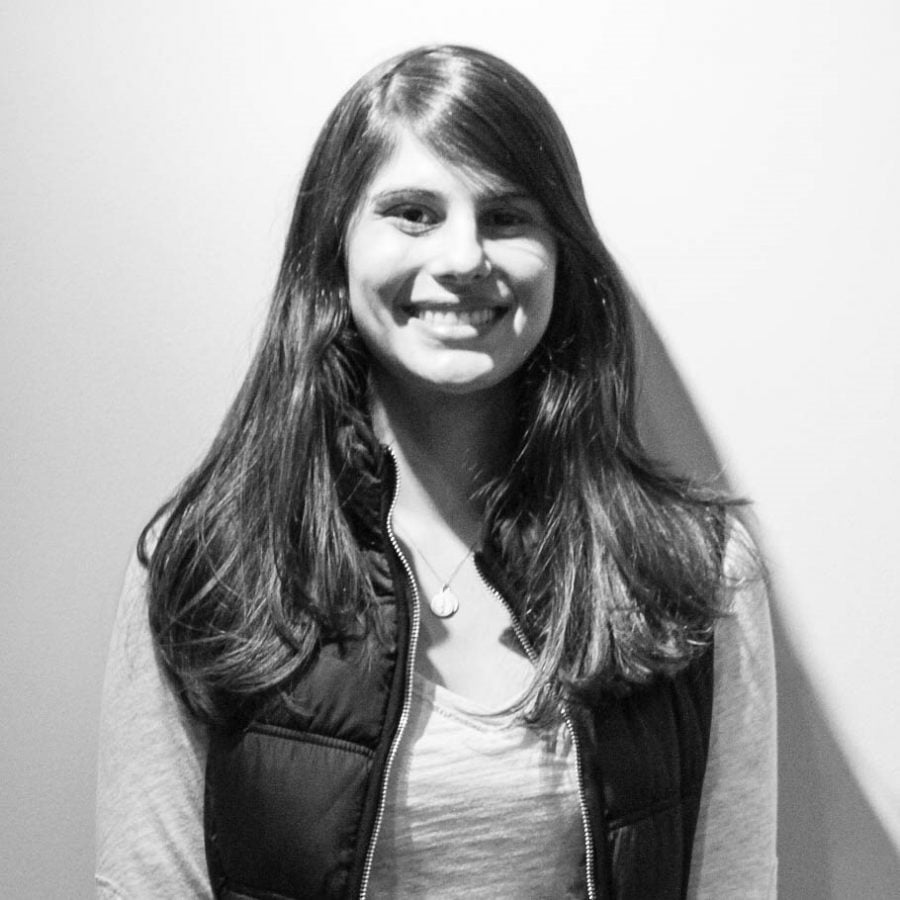Guilford community, students do a great job at teaching social justice
I can definitely say that I am not the same Beatriz I was three years ago. From the moment I stepped on this campus, my opinions, thoughts and ideas have changed. Some of these changes were small, but impactful, and some were life changing.
None of it would be possible or would have happened if it were not for the social justice education I have received since the first day of first-year orientation.
The people I met came from backgrounds unlike mine, spoke different languages than I did and even had extraordinary experiences to share with me. Thinking about it, I hope that I impacted their lives as much as they impacted mine.
But the question lingers. Is the social justice education experience the same for every student on our campus?
The answer for me is yes.
Of course, not every student is going to take the same classes and go to the same club meetings, but I personally believe that Guilford has an interesting way of creating similar opportunities to each person.
The Understanding Racism workshop, which happens every year, invites all students to participate and learn more about their privileges, their role in society and how to be fighters against racism. This past summer I had the pleasure of working with both Irving Zavaleta Jimenez, the assistant director for the Multicultural Education Department, and Krishauna Hines-Gaither, the new director for the MED. These people have opened my eyes and made me uncomfortable, in a good way, about my privileges and how I can be useful on campus in helping other marginalized groups.
It was important for me to have this training since we can sometimes forget how lucky we are in many aspects of our lives. And we must remember to aid those who were born into more difficult situations when they need it.
I was very glad to see that I am not alone in believing Guilfordians are doing well when it comes to social justice.
“I feel like the students here are … in tune with social justice,” said junior Amelia Wellman. “And I feel like … to the students here social justice is already very important and … in a lot of ways the student is what makes the school.
“Just yesterday, two friends of mine who had never met each other (started) debating on something, but they did it in a way that no one’s feelings got hurt. They were very civil about it and they were able to have an impact on each other.”
And this is what makes me happiest about our community. We are able to not only learn from professors and coordinators, but we also learn from one another. The students have always been vocal about their needs and about fighting for what is right. I love to see that passion turning into positive outcomes, such as going out in support of marginalized groups at Guilford or in the world.
What impresses me the most is seeing new ideas coming from unexpected discussions.
“I think Guilford loves it when people who come from different backgrounds speak up in class to talk about (social justice),” said sophomore Carina Holmes. “And it … makes the competition more lively in a sense, because we’re not all going to agree with the same thing or see things in the same perspective, but it’s just kind of cool to see how … (people) talk it out or collide or something like that.”
Perfection is hard to achieve, however, and sometimes it is possible to see that programs, events or panels on social justice may not have impacted everyone on our campus. In the many protests I saw happening at Guilford, there were always those who did not agree with those protesting and didn’t want to see any type of change.
But I try to see all of these with positivity. Maybe knowing how others feel will help us improve as a community through discussion.
The MED is particularly important when it comes to raising relevant discussions on our campus and it is currently working on helping first-year students transition into Guilford’s social justice mindset.
“The First-Year Experience has changed quite a bit from its first go,” said Graduate Assistant for the MED Déja Fitzgerald. “We’re talking about … diversity (and) we’re talking … the structural integrity of not just who we are as people but (as) a country.
“We’re looking at so different things so … [students are] getting exposed [to social justice issues] in almost a more intentional way because it’s one of their academic classes. You don’t have to babysit (first-years), but they’re new to some of these conversations. You have to help them transition.”
I agree with Fitzgerald. We must help the new students adapt to not only college, but to life as well. We need to prepare our community for what happens after we leave our safe bubble and have to fight alone in the real world.
I hope to continue to be a part of this campus in its mission to fight oppression, prejudice and dishonesty. And I hope that years from now, I can come back to find a school that still embraces diversity and change.










Walter • Sep 8, 2017 at 9:05 am
“The MED is particularly important when it comes to raising relevant discussions on our campus and it is currently working on helping first-year students transition into Guilford’s social justice mindset.”
Beware those who would teach you what to think, instead of HOW to think.